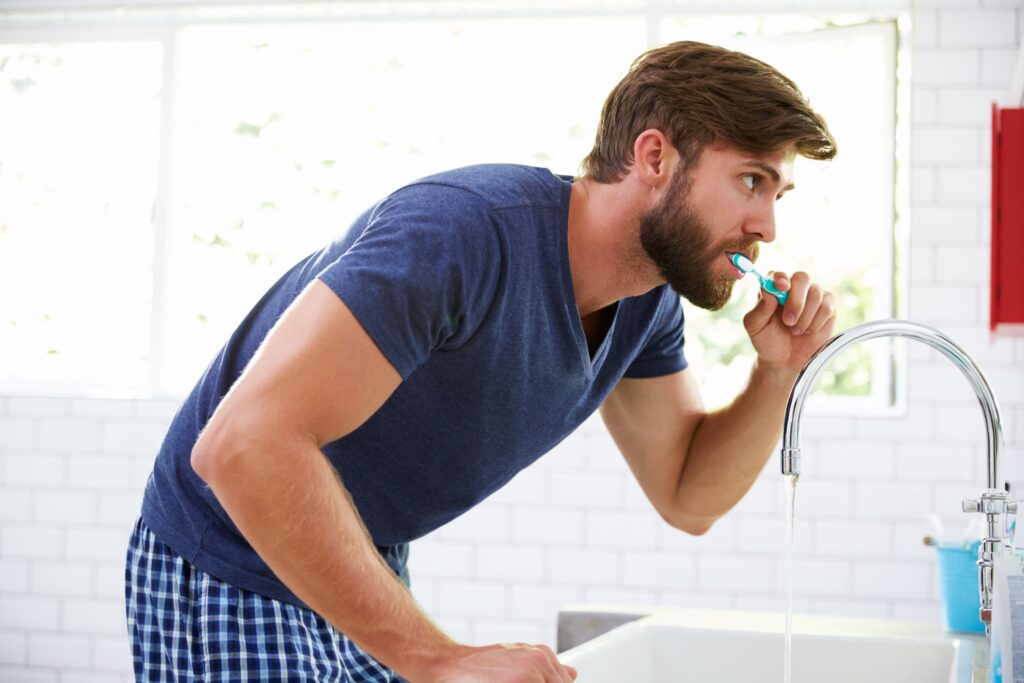
Did you know that the American Dental Association recommends visiting your dentist every six months for a routine checkup? This allows them to monitor your oral health to catch and treat problem areas, like thinning enamel or inflamed gums, before they can progress.
However, if you don’t also brush and floss twice daily at home, you might hurt your smile. Daily cleaning is required to remove plaque and bacteria that contribute to common dental problems. Many patients wonder whether they should also rinse their mouth with water after completing their dental hygiene regimen. Continue reading to learn more about it!
Why Do People Rinse After Brushing?
Implementing a twice-daily dental hygiene routine is a simple and effective way to keep your teeth and gums happy and healthy. Consistent cleanings regularly remove residue that builds up and causes issues, like tooth decay or periodontal problems. Then, if you’re like many others, you might instinctively scoop up a handful of water to rinse your mouth before continuing your day.
Some people do this to avoid swallowing leftover toothpaste that’s not intended to be ingested in large quantities, or they might simply want to reduce the sting of an overly minty toothpaste. Whatever the reason for it, it’s not always better for your dental health.
Should I Rinse After Brushing?
Plenty of people don’t realize that many brands of toothpaste bolster their products with ingredients that can boost your oral condition, like fluoride. This naturally occurring mineral restores enamel to strengthen your teeth and increase their resistance to damage and decay. It’s most effective when applied directly to your teeth, and needs to remain there several minutes to make an impact.
Unfortunately, if you rinse your mouth before the active ingredient has had a chance to work, you’re not reaping the full benefits of your dental care routine.
When Can I Rinse After Brushing My Teeth?
Some experts recommend waiting 30 minutes to eat or drink anything after brushing to give the fluoride enough time to remineralize the protective outer layer of your teeth. If you’re worried about swallowing too much toothpaste after scrubbing, it might help to apply a smaller amount to your brush before beginning. That way, you are less likely to have excess foam in your mouth to swallow.
Generally, using a pea-sized amount of product is enough to achieve a thorough clean without risking adverse effects if you accidentally ingest some!
About the Author
At Family Dental Associates of Spring Hill, patients benefit from two dentists who take pride in helping families build and maintain beautiful, healthy teeth and gums. Dr. Allen and Dr. Jewell collaborate to provide a comprehensive menu of services at one location to people of all ages, so your entire crew enjoys the same top-quality care. They take the time to learn about your unique concerns and goals, then tailor treatment plans to help address them. Then, they combine a caring approach with state-of-the-art technology to improve your comfort while delivering accurate results. You can request an appointment on the website or call (615) 302-1414.
